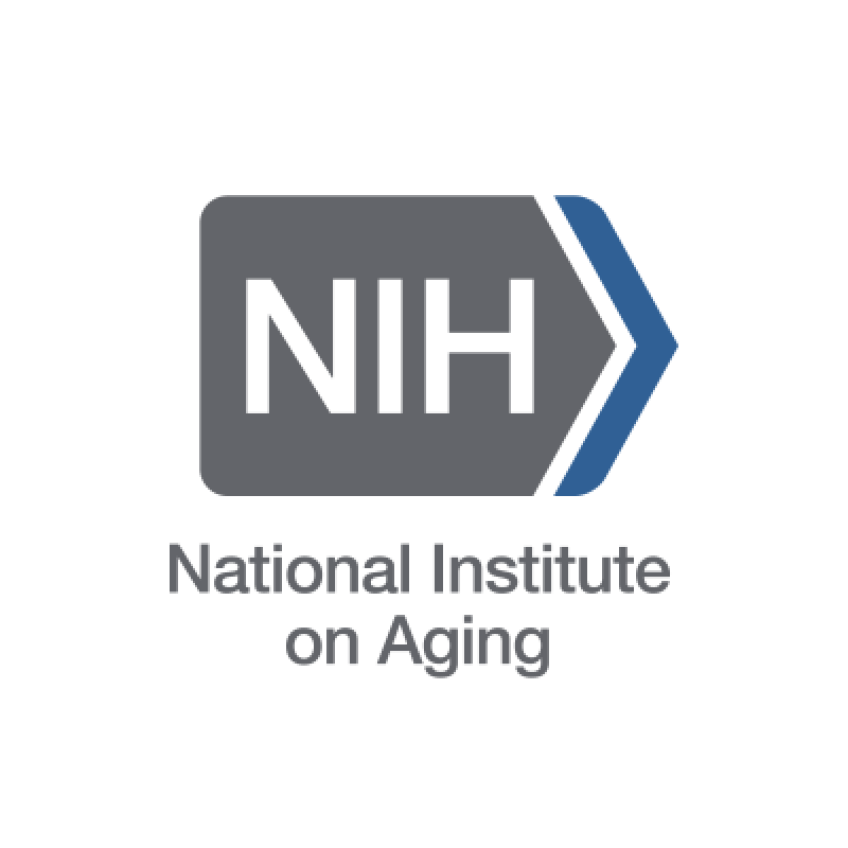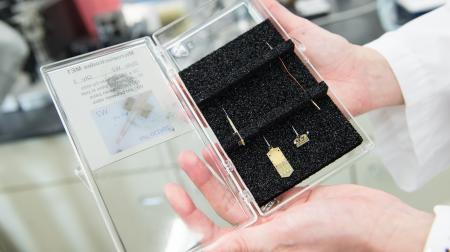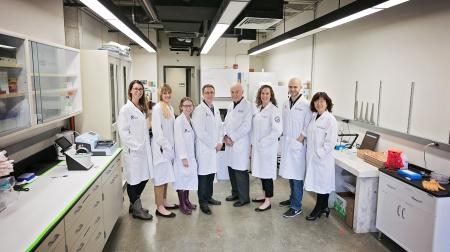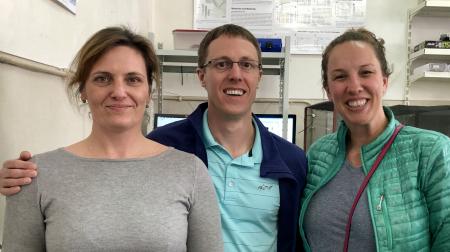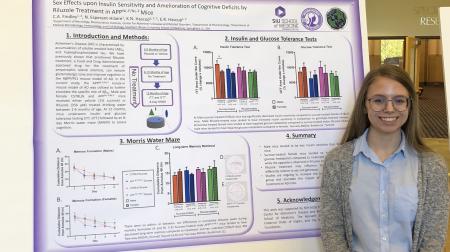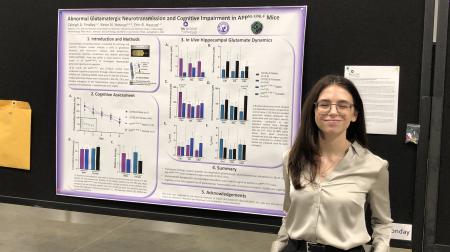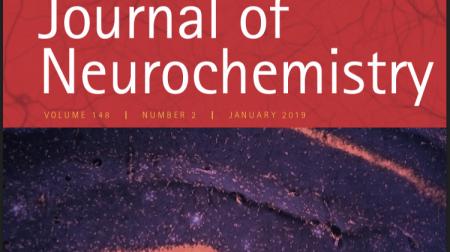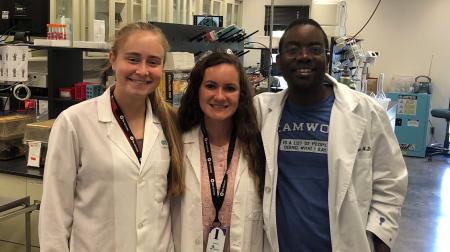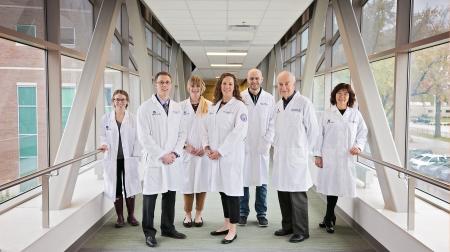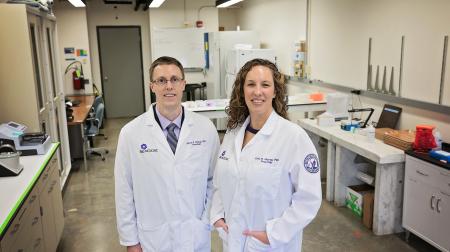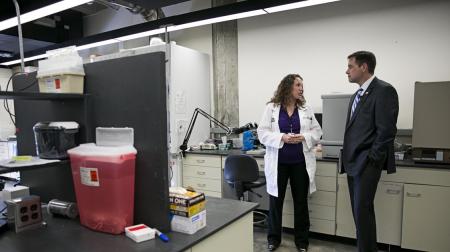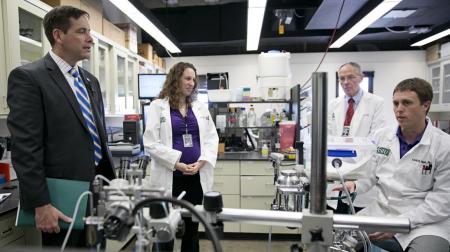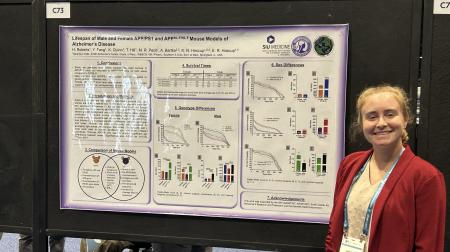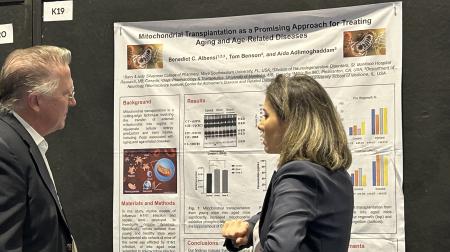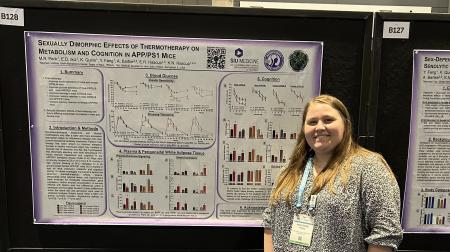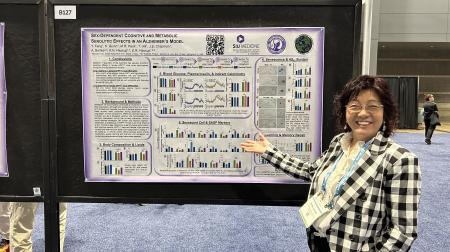
Erin Hascup Lab
Our neuroscience lab has the long-term goal of determining a functional biomarker to determine Alzheimer's disease status during pre-clinical stages with a focus on early treatment and new therapeutic strategies.
Overview
Alzheimer’s disease is an age-related neurodegenerative disorder that over time leads to severe memory impairment and greatly impacts patients and their loved ones. There is no cure or effective treatment for Alzheimer’s disease and recent evidence support early intervention as essential for improving disease outcome.
Our lab is dedicated to finding effective preventions and treatments for Alzheimer’s disease. Research emphasis is on determining risk factors, and their associated mechanisms, that contribute to memory loss and Alzheimer’s disease that will allow for earlier diagnosis and treatment to improve patient outcome. To accomplish this, we focus on discovery of early biomarkers and intervention strategies, primarily in the areas of neurotransmission, inflammation, and cell senescence, in combination with cognitive assessments.

Erin R. Hascup, PhD Primary Investigator
Research Focus
CURRENT PROJECTS
- Neurotransmitter Regulation in AD (NIH R01 AG057767)
- Early Intervention in AD
- Cell senescence in aging and AD (NIH R01 AG061937)
- Inflammation in aging and AD (NIH R01 AG061937)
- Disease Stage Specific AD Therapies (NIH R01 AG057767)
- Cell senescence in epilepsy
Grant funding
Publications
Lab Collaborators
Past Lab Team Members
- Lindsay Alewelt
- Sarah Broderick
- Matthew Cleveland, MD
- MaKayla Cox
- Nahayo Esperant-Hilaire, MD
- Tracey Evans, PhD
- Caleigh Findley, PhD
- Patrick Fitzgerald, MD
- Thomas Johnston
- Nadeem Khan, MD
- Abigail Levy, MD
- Erik Lokaitis
- Neha Mokhasi
- Oladele Owasoyo, PhD
- Sujata Pandey
- Collin Pauly
- Teonna Piphus
- Shari Randall
- Shelly Reeter
- Hannah Roberts
- Lindsey Sime
- Ernesto Solis, Jr., PhD
- Aaron Sul, MD
- Farah Tamizuddin, MD
- Darrow Traylor
- Niyant Vora
- Bradley Vost, MD

